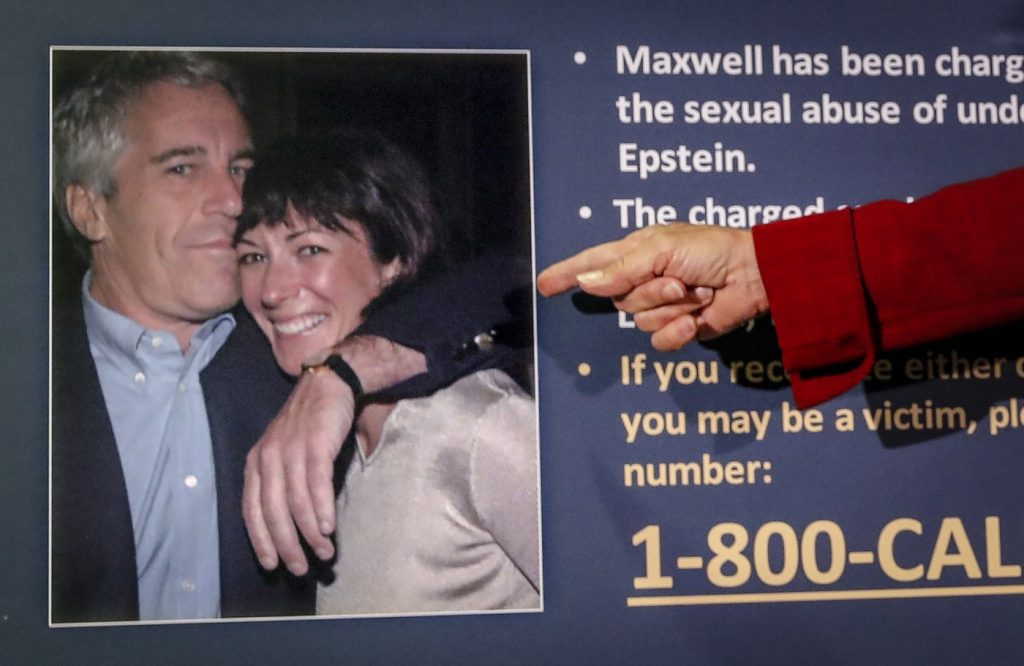WASHINGTON (AP) — A pivotal House committee is investigating the late Jeffrey Epstein for sex trafficking crimes, aiming to subpoena President Donald Trump’s Department of Justice for files related to the case and also to conduct a deposition of Epstein’s former girlfriend, Ghislaine Maxwell. This move comes as the Republican-led House Oversight and Government Reform Committee prepares to act before a monthlong congressional break.
The committee's actions signal an increasing pressure for transparency regarding Epstein's case, which has fueled relentless speculation since his death in 2019. Despite Trump urging supporters to move on from the topic, the developments indicate a complex entanglement involving politics, law, and public interest.
Initially, the committee, with support from three Republicans, successfully launched a subpoena from a subcommittee just as the House broke for August recess. This initiation is only the start of prolonged negotiations concerning the subpoena's details. The subcommittee decided to redact the names and personal information of any victims, but their request remains broad, seeking “un-redacted Epstein files.”
As the subpoena is drafted, Democrats are pushing for compliance within 30 days once it is served to Attorney General Pam Bondi. The requested documents include prosecutorial decisions regarding Epstein, information related to his death, and communications from any president or executive official linked to the matter. The Republican majority in the committee will ultimately influence the scope of the subpoena, but the bipartisan support showcases a significant level of concern.
Rep. James Comer, R-Ky., the committee chairman, highlighted that committee members are keen on pursuing transparency regarding the Epstein files, reflecting a sentiment shared among the American public.
In addition to subpoenaing the Epstein files, Comer expressed intentions for committee staff to interview Ghislaine Maxwell under oath. This is planned for August 11 at the federal prison in Florida where she is serving a lengthy sentence for child sex trafficking. In congressional depositions, witnesses are typically assisted by attorneys, granting them the option to decline answering questions that could implicate them criminally. Given Maxwell’s prior convictions, many of the queries she might face would revolve around her previous actions.
Despite the intention of direct questioning, Democrats have reservations regarding Maxwell’s reliability as a witness. Rep. Robert Garcia emphasized her complex nature, describing her as someone who has inflicted significant harm on many individuals.
The Republican committee members have also moved to issue subpoenas to various notable figures, including former President Bill Clinton and former Secretary of State Hillary Clinton, as well as former attorneys general dating back to Alberto Gonzales of the George W. Bush administration. The outcome of these extensive subpoenas remains uncertain, but Comer expressed a commitment to expedite the process.
As the dynamics unfold, the response from Pam Bondi, the current Attorney General, could pave the way for a legal showdown regarding compliance with the subpoena. The Justice Department has the option to negotiate terms or challenge aspects of the requests. Joshua A. Levy, an expert on congressional investigations, noted that the effectiveness of the subpoena relies heavily on whether the Trump administration opts for a collaborative approach or becomes entrenched in opposition.
Should the Congress find Bondi’s response unsatisfactory or if compliance is refused altogether, lawmakers could pursue steps to enforce the subpoena, including the drastic measure of holding her in contempt of Congress. This scenario is notable since it’s rare for one political party to discipline its own member, but the complexities of the Epstein case have transcended party lines and caused divisions within the GOP.
The bipartisan approval for the subpoena underscores growing political pressure on the Trump administration to release the Epstein files. With complex intertwining of politics, policy, and legal pursuits, the request for a full accounting of the sex trafficking investigation reflects a commitment among many lawmakers for accountability in instances of such serious misconduct.
As Congress returns in September, a bipartisan coalition is working towards advancing a bill aimed at making the Epstein files public, signaling that the issue will remain at the forefront of congressional discussions.











